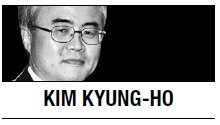When President Park Geun-hye last month announced a plan to send medical personnel to the Ebola-hit countries of West Africa, many officials here were unsure whether half of the 20-member team could be staffed with private volunteers as planned.
But they soon found their concern unfounded. Within a week of the application process starting on Oct. 24, more than 40 health care  professionals applied for the voluntary mission. The number will turn out to be far higher by the deadline set for Friday. The other half are to be recruited from military health personnel.
professionals applied for the voluntary mission. The number will turn out to be far higher by the deadline set for Friday. The other half are to be recruited from military health personnel.
Some doctors have been so eager to join the mission as to propose covering all costs for their dispatch on their own. Six medical professionals called the Health Ministry to ask to be included in the team even before the application process started.
More than three months after the World Health Organization declared West Africa’s Ebola epidemic a global emergency, international efforts still need to be strengthened to fight the disease. At least 13,567 people are estimated to have contracted the virus in the latest outbreak, and nearly 5,000 have died, according to data released on the WHO website last week. All but a few of the cases have been in the three West African countries of Guinea, Liberia and Sierra Leone.
Doctors, nurses and other health workers have been particularly vulnerable to infection due to the way the disease spreads through contact with fluids from patients. Nearly 450 medical professionals have contracted the virus, and more than half of them have died as of the end of October.
Korea’s medical team, which is scheduled to help treat West Africa’s Ebola patients until January, will mark the first time the country has ever sent personnel abroad to respond to an epidemic overseas. Health officials here say the dispatch will not only contribute to the international effort to contain the virus but also serve to learn firsthand how to cope with a deadly epidemic.
Korea, which has pledged $5.6 million in assistance to global agencies fighting to contain the spread of the virus, might have had to decide earlier to send medical personnel to the Ebola-hit areas. As U.N. Secretary-General Ban Ki-moon, a former South Korean foreign minister, noted this week, the best way to stop the Ebola virus “is to stop this virus at its source.”
It will still give us the feeling of carrying out our duty as a major member of the international community for the country’s medical staff to work with their colleagues from a dozen countries to treat patients in West Africa. It is encouraging that many doctors, nurses and other health workers in the country have volunteered for a mission that may risk their lives. This may be no surprise, given that a growing number of Korean doctors have spend their holidays caring for patients in less developed countries around the world. Many young doctors have also joined global health programs.
It is certainly important to secure the safety of medical personnel to be sent to West Africa. But the controversy over the country’s preparedness for undertaking the mission, which followed Park’s announcement, now seems somewhat futile as a larger-than-expected number of health workers armed with a sense of calling and professionalism have applied for the risky job.
They are setting valuable examples for other Korean citizens in two respects.
First, their courageous choice should help further shift the mindset of Koreans to being more active in responding to growing international expectations of the country’s involvement in coping with global challenges.
Over the past six decades, the nation has achieved industrialization and democracy from the ruins of the 1950-53 Korean War. What is now required of Koreans is a more liberal, inclusive and positive global outlook. They need to enhance their image in the international community as benevolent, sincere and trustworthy. A nation commanding respect from people around the world may be what should ultimately be built on the legacy of the devastating fratricidal war.
The sense of calling shown by the volunteer medical professionals is also what the Korean public should share to build an advanced civil society that ensures a harmonious and safe life for its members. In an era of diversified interests and globalization, it is too much to expect the government to solve all problems. Too much reliance on the state, in turn, results in excessive regulations that undermine civil society’s capability to sort out its own problems in a more effective way.
Citizens should now come forward more voluntarily to do work needed to enhance the advancement and safety of their community. The story of volunteer medical staff risking their lives to fight the Ebola virus far away from home should inspire them to behave more boldly and responsibly.
By Kim Kyung-ho
Kim Kyung-ho is an editorial writer for The Korea Herald. He can be reached at khkim@heraldcorp.com. ― Ed.

